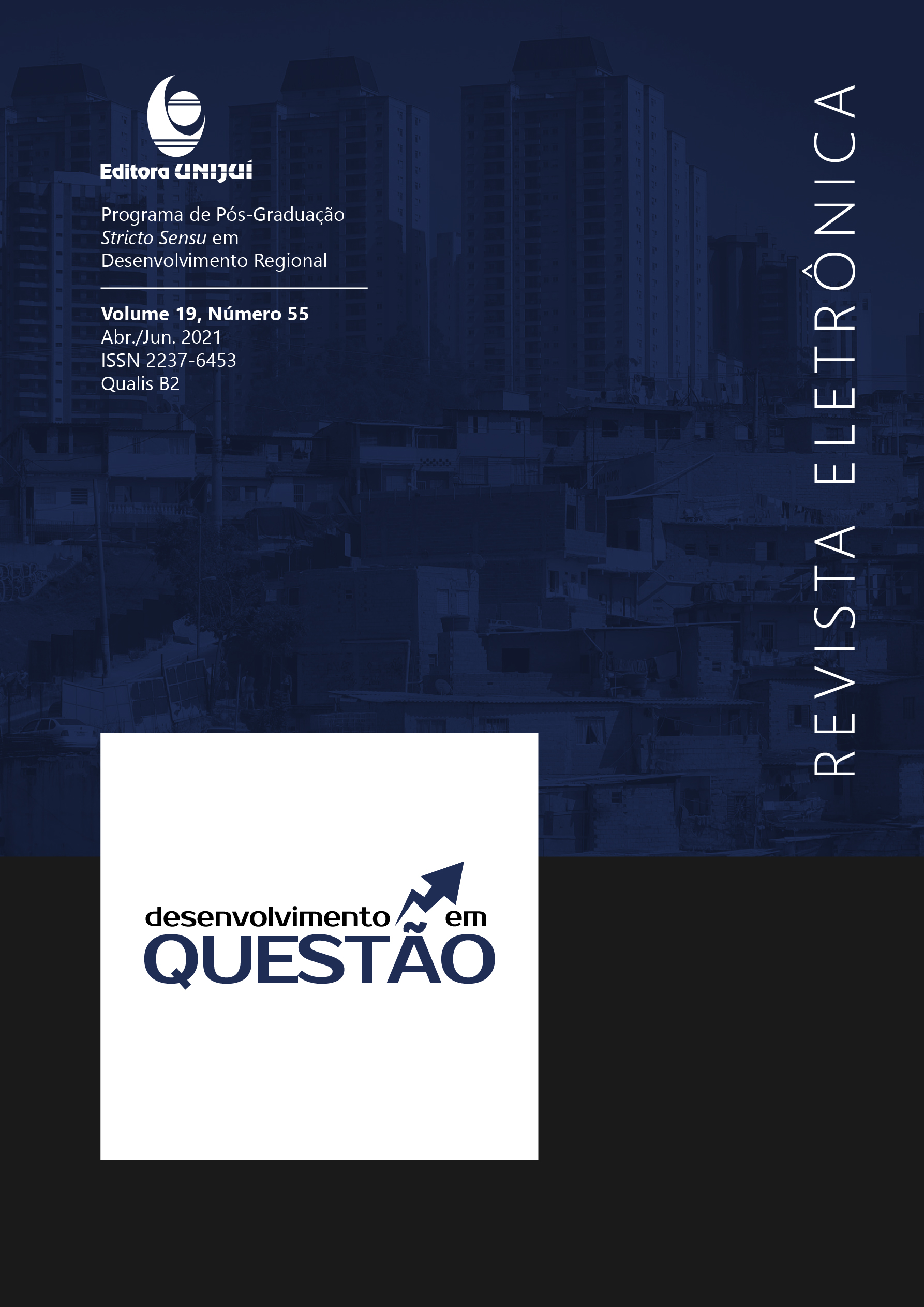O Aglomerado Produtivo da Indústria Salineira do Rio Grande do Norte
THE PRODUCTIVE AGGLOMERATE OF THE RIO GRANDE DO NORTE SALINARY INDUSTRY
DOI:
https://doi.org/10.21527/2237-6453.2021.55.11360Palavras-chave:
Aglomerados Produtivos. Industria Salineira. Rio Grande do Norte.Resumo
O tema desta pesquisa é o aglomerado produtivo da indústria salineira do RN, o estudo teve por objetivo analisar se a indústria salineira possui os processos necessários para se promover o desenvolvimento do seu aglomerado produtivo, para referendar a pesquisa evidenciou-se as principais práticas dos aglomerados produtivos que obtiveram êxito ao longo da história A metodologia de pesquisa é descritiva; a abordagem do problema de natureza quantitativa; o objeto de estudo foi Indústria Salineira do Rio Grande do Norte; utilizou-se de um questionário aplicado com 115 gestores, em 2019; a ferramenta estatística utilizada foi a análise fatorial. Os principais resultados, no fator inovação tecnológica, apresentou-se com baixa tecnologia, com inexistência de polos tecnológicos e baixo nível de cooperação; no polo empresa-comunidade, evidenciou a não inclusão da comunidade local nas estratégias empresarias e a não observância da cultura local; no fator atuação institucional, constatou-se a carência da inserção do ator público; e no polo competitividade, destacou-se a necessidade de desconcentração e descentralização no setor salineiro, nesse fator observou-se um maior equilíbrio em relação as práticas dos aglomerados estudados. Conclusões, a indústria salineira carece-se de organização na sua indústria, destacadamente com a participação do ator institucional para promover as políticas para desenvolvimento do setor. Esse estudo contribui com o setor empresarial, apresentando um panorama da indústria salineira do RN relacionado com a prática dos aglomerados de sucesso e contribui para academia como modelo de como se analisar um setor. Destaca-se em estudos futuros, que sejam inseridos outros atores na pesquisa.
Downloads
Publicado
Como Citar
Edição
Seção
Licença
Ao publicar na Revista Desenvolvimento em Questão, os autores concordam com os seguintes termos:
Os trabalhos seguem a licença Creative Commons Atribuição 4.0 Internacional (CC BY 4.0), que permite:
Compartilhar — copiar e redistribuir o material em qualquer meio ou formato;
Adaptar — remixar, transformar e criar a partir do material para qualquer fim, inclusive comercial.
Essas permissões são irrevogáveis, desde que respeitados os seguintes termos:
Atribuição — Atribuição — os autores devem ser devidamente creditados, com link para a licença e indicação de eventuais alterações realizadas.
Sem restrições adicionais — não podem ser aplicadas condições legais ou tecnológicas que restrinjam o uso permitido pela licença.
Avisos:
A licença não se aplica a elementos em domínio público ou cobertos por exceções legais.
A licença não garante todos os direitos necessários para usos específicos (ex.: direitos de imagem, privacidade ou morais).
A revista não se responsabiliza pelas opiniões expressas nos artigos, que são de exclusiva responsabilidade dos autores. O Editor, com o apoio do Comitê Editorial, reserva-se o direito de sugerir ou solicitar modificações quando necessário.
Somente serão aceitos artigos científicos originais, com resultados de pesquisas de interesse que não tenham sido publicados nem submetidos simultaneamente a outro periódico com o mesmo objetivo.
A menção a marcas comerciais ou produtos específicos destina-se apenas à identificação, sem qualquer vínculo promocional por parte dos autores ou da revista.
Contrato de Licença (para artigos publicados a partir de 2025): Os autores mantêm os direitos autorais sobre seu artigo, e concedem a Revista Desenvolvimento em Questão o direito de primeira publicação.











